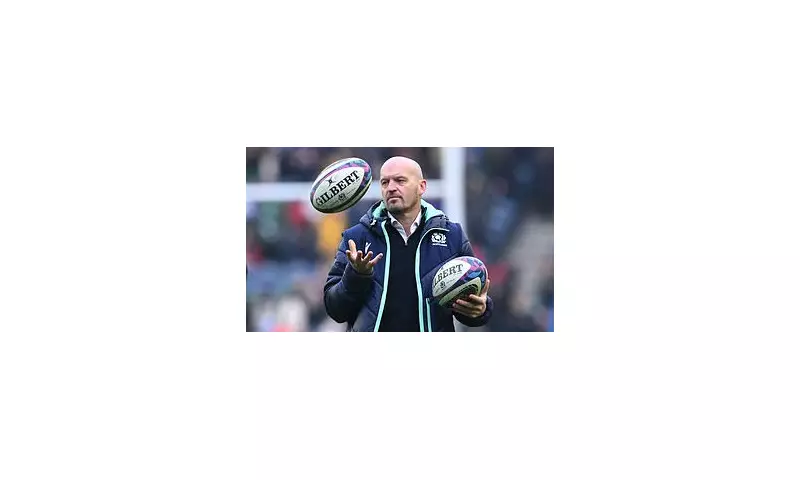
The Breaking Point for Under-Fire Coaches
There exists a crucial moment in every struggling coach's career when stubborn determination crosses into outright denial. Reality becomes distorted as excuses multiply and the digging only deepens the hole. The language turns to confusing psychobabble and logical knots tighten.
Recent examples in British sport illustrate this pattern perfectly. Celtic manager Brendan Rodgers recently made headlines by unfavourably comparing his players to a Honda Civic. At Rangers, Russell Martin blamed squad 'anxiety' for poor performances rather than his own tactical decisions, responding by taking his team open-water swimming in Loch Lomond.
Even Australian rugby coach Eddie Jones, during his tenure, famously targeted media coverage as the cause of his team's disappointing results. Now, evidence suggests Scotland head coach Gregor Townsend may have reached this same critical juncture.
Townsend's Astonishing Response to Argentina Collapse
Following his team's catastrophic 21-point lead surrender against Argentina at Murrayfield last weekend, where Scottish players were booed from the pitch, Townsend made some remarkable claims ahead of Sunday's match against Tonga.
When questioned about the lack of progress under his leadership and repeated errors, Townsend responded: 'Look, I disagree with that. The supporters are coming out in huge numbers. We actually had a spike [in ticket sales] after the game last weekend and I don't think they were all from Tonga [fans] buying tickets.'
He continued to highlight the positive atmosphere during the New Zealand match and the ringing sounds of Flower of Scotland, insisting supporters remain behind the team despite their obvious disappointment.
Townsend referenced momentum swings in modern rugby, noting that 'a lot of teams now are capable of beating each other in the top ten in the world'. He contrasted the Argentina collapse with the previous week's comeback from 17-0 down against New Zealand, though Scotland ultimately lost that match 25-17.
The Hard Facts Behind Scotland's Decline
The statistics reveal a troubling trend for Scottish rugby under Townsend's stewardship. Over the past two years, Scotland have fallen from fifth to ninth in the world rankings. Their Six Nations performances have been equally concerning, with just two victories in each of the last two campaigns.
Perhaps most worrying is the team's developing tendency toward self-destruction during crucial moments. Yet Townsend remains adamant about his future, committed to seeing out his contract which runs until the 2027 World Cup.
When directly questioned about mental fragility within his squad, the coach was dismissive: 'I would disagree, I wouldn't say routinely [this team suffers a meltdown]. That's sport. If there's a team that goes through, wins every game, and doesn't lose momentum at certain points, then I'm not watching the same sport as everybody else.'
Despite the painful review process following the Argentina match, Townsend maintains belief in his players' training response and their ability to learn from defeats.
Team Changes and Tonga Challenge
As Scotland prepares to face Tonga, Townsend has made fourteen changes to the starting lineup, with captain Sione Tuipulotu the sole survivor from the Argentina defeat.
The match marks the return of Zander Fagerson after a seven-month injury absence, joining an experienced front row alongside Rory Sutherland and George Turner, who earns his 50th cap.
Townsend anticipates a physical challenge against Tonga, particularly given the forecasted poor weather conditions. He emphasised the importance of set-piece execution and defensive organisation.
Regarding Fagerson's readiness, Townsend confirmed: 'With Zander, he's trained two weeks now, so he seems ready. We train pretty full-on, so he's had scrums this week, we've had a lot of live tackling.'
The coach reflected on the thorough review process since the Argentina defeat, acknowledging the painful but necessary analysis of the final 25 minutes. Despite the recent setback, Townsend insists he has seen the best of his players throughout the campaign, with the Argentina collapse representing an unfortunate aberration rather than a fundamental flaw.




